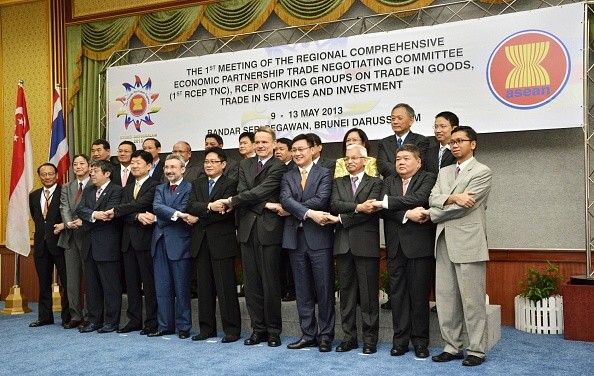Emerging economies in Asia, especially in Southeast Asia, are looking at China to drive and maintain the growth in the region as U.S. economic direction appears uncertain, according to VOA News.
Asian countries are also slowly veering away from U.S. monetary decision as indicated on Thursday, March 16, when most regional markets did not follow the U.S. Federal Reserve's 0.25 basis point increase in interest rates. But China, Singapore and Hong Kong have reportedly raised their interest points.
According to analysts at Capital Economics, a London-based firm, the interest rate policies of most Asian economies depend on local factors rather than the actions of the U.S. monetary authorities.
China's influence on Asian economies increased after the U.S. withdrew from the 12-nation Trans-Pacific Partnership (TPP) earlier this year. The TPP is a major U.S. policy platform during the Obama administration as part of the U.S. pivot to expand U.S influence in the region.
According to Somphob Manarangsan, a Thai economist, China's growing economy will be enhanced by its "One Belt One Road" initiative, which will further push regional economic integration and help develop the Asia-Pacific regional economy.
"From now on China may move more actively to this region [Southeast Asia]. China is the real sector based economy [of manufacturing] as you know, so they have to have greater integration of the supply chain and value chain, and it can replace the greater uncertainty of the U.S. market," Somphob told VOA.
China's regional influence
Somphob added that China's political and social influence in the Asia-Pacific region will grow as its economy become more influential.
The Thai economist said that the bilateral relations of Asian countries with China, especially those with struggling economies, will have a significant impact on the region. This was the result of the U.S. protectionist economic policies.
"It will be relatively serious. As we know that China is one of the major regional supply [chains]. So that means that directly or indirectly it's going to affect the ASEAN economy considerably," Somphob said, adding that it will also impact also on Japan and South Korea.
Over the past decade, trade ties between Southeast Asian countries and China have been growing while intermediate goods have been exported to international markets.
Impact on the region
Asian Development Bank (ADB) senior economist, Cyn-Young Park, said that the growth of East Asian economies is dependent on the "dynamic growth in China".
The impact of the declining U.S. role in the market is shown by the drop in Southeast Asia's exports to the U.S., from 50 percent of total exports in the 1990s to 29 percent at present.
Park also added that any global event could have a major effect on the region's economies.
"Emerging East Asia has become more, not less, integrated with the global economy and as a result of the impact of a global shock, whether related to trade or financial markets, has become greater," he said.
Pavida Pananond, a professor of business studies at Bangkok's Thammasat University, explained that Asia's growing middle class has strengthened the economies that led to steady economic growth over recent decades.
"And that's why the shifting focus of the regional integration in Asia, or its regional focus, is not solely because of the Trump policies but it is the changing dynamics of the economic power that has been taking place over a few decades," Pavida said.
"The rising power of the consumer in Asia is becoming more important. China is growing. China is now the major trade and investment destination to and from ASEAN [Association of Southeast Asian Nations]," she said.
In its report, the World Bank also warned Asian economies of "heightened policy uncertainty in advanced economies," as trade protectionism is gaining support in Europe and the U.S.
"Rising political opposition to trade has contributed to a post [2008] crisis high in new trade restrictions in the past year," the Bank said.
Capital Economics analysts, however, said that the U.S. seem to be less confrontational on the issue of trade relations with China.
"The threat to label China a currency manipulator on [President Trump's] first day in office failed to materialize, talk of an across the broad tariffs have been dropped, while growing question marks over a proposed border-adjusted corporate tax," Capital Economics' Gareth Leather said.




























